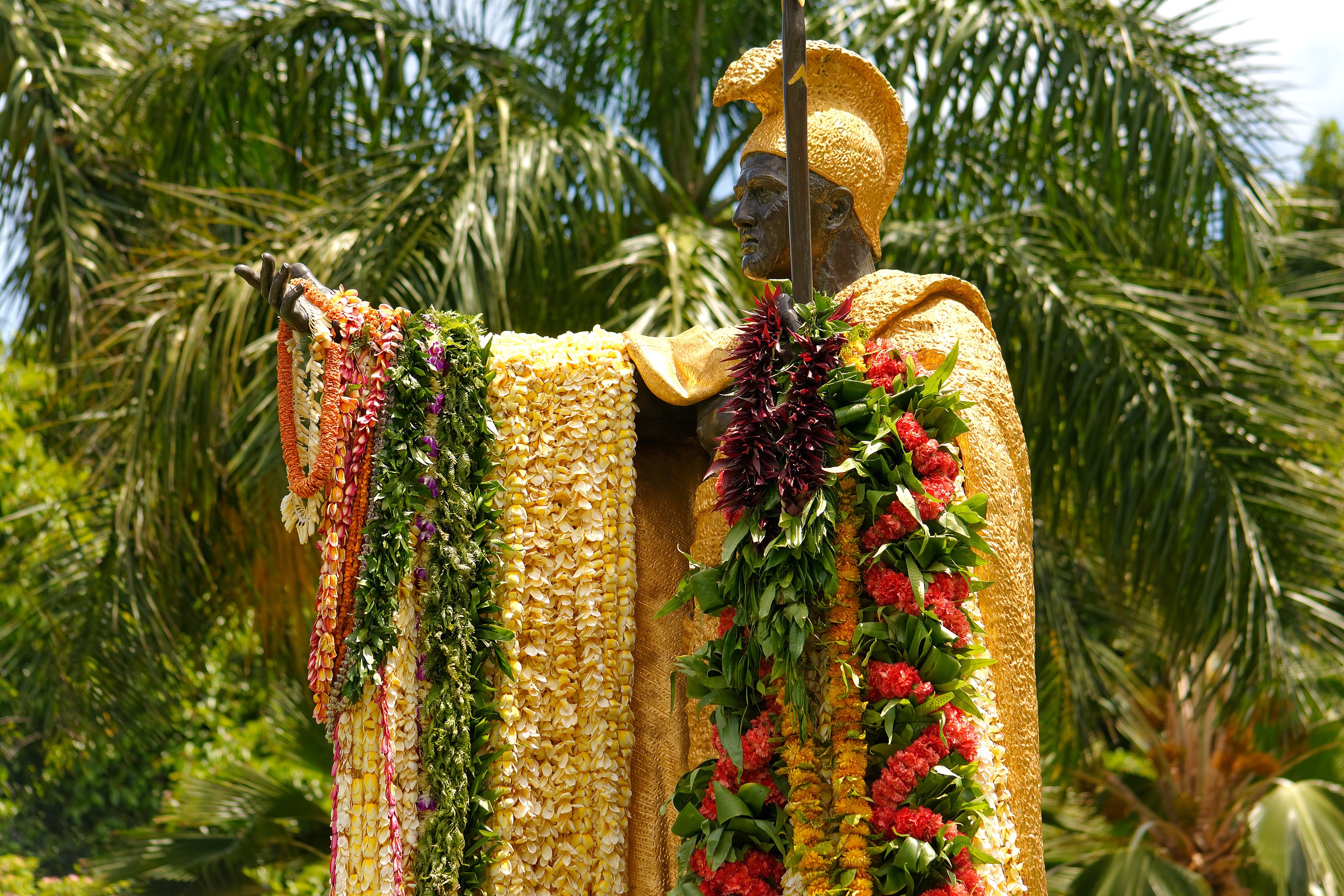If I could magically transport you to Hawaii to celebrate King Kamehameha Day in person, I would. But short of that, let’s go there together via song. Our guide for this journey will be the musician Robi Kahakalau, and the song of hers that takes me to the Hawaiian Islands again and again is “Makua.”
But first, you’re no doubt wondering, who are these people, King Kamehameha and Robi Kahakalau? And this day of celebration—June 11th—what’s it all about, and what does it mean for people who don’t live in Hawaii?
In a moment, I’ll get to two universal themes that I find enduring—freedom and the longing for a place of refuge. But to provide context, the legendary Kamehameha was in fact a real person, the leader who first unified the Hawaiian Islands as a kingdom in 1795. In doing so, he forged a peace that ended decades of warfare. He’s known as Kamehameha the Great or King Kamehameha I.
In 1871, his descendent King Kamehameha V proclaimed a day of honor to celebrate the life of the founder who fought to establish and preserve the kingdom’s independence.
Fast forward to the modern day. Robi Kahakalau has made a lot of history of her own and for good reasons. A multi-talented musician who performs as Sistah Robi, this Grammy nominated songwriter and teacher is one of Hawaii’s most popular entertainers with a musical career that spans four decades and counting.
Where these historical and musical currents converge is a beach not far where I lived for three years in the mid-1990s. Yes, even more fortunate than landing a great first job out of college is being assigned to the run the company’s operations in Honolulu. Thank you, Frito-Lay.
During the three years we lived in Honolulu, my wife Judy and I did everything we could to learn from our neighbors and gain an appreciation for Hawaiian culture. That’s when we experienced our first King Kamehameha Day celebration and started learning about Hawaiian history and culture.
It was also during those years when I first heard the song “Makua,” which Robi Kahakalau wrote. Our church in Waianae worked to support homeless people in the area, and many of those folks lived near the place referenced in the song. I remember the first time I really thought about the lyrics and how they struck a chord with me. Specifically, the lyrics were, “Magic is Makua, our ‘aina. A land that belongs to you and me. It’s the pu’uhonua for the kua’aina. A place where we Hawaiians can still be free.”
Sistah Robi is describing the remote stretch of land (‘aina) and beach area called Makua, where local native folks (kua’aina) on the west side of the island of Oahu lived in tents. Sistah Robi refers to this place using the Hawaiian word “pu’uhonua.”
You see, Makua is not just an idyllic Hawaiian locale—white sands and blue water with whales swimming offshore. Pu’uhonua means “place of refuge,” once a place that was considered the only option of survival for defeated Hawaiian warriors and those who were sentenced to death for violating the kapu (laws of conduct). Historically, Pu’uhonua was a place where even the most desperate outcast could find refuge.
I remember hearing folks singing the song’s last line—“a place where we Hawaiians can still be free”—and it made me think about the definition of freedom. It made me consider how, for some, freedom is found in a place of refuge, a place absent of the punishments of their marginalized experiences in everyday life. I guess maybe it is also true that many of the world’s hungry, tired, struggling, broken-hearted people are seeking their own pu’uhonua.
King Kamehameha is an enormously popular and storied figure in the history of the Hawaii. He and his successors established a new way forward for the Hawaiian people, freeing them from the seemingly endless wars and the brutal kapu system. For the people of Hawaii, and perhaps even more so for the less privileged of that community, King Kamehaheha Day remains so important.
Each year on June 11th, as crowds of people gather in the lovely parks and beaches of the state, many of the less fortunate gather at the remote homeless encampment at Makua. For them it’s a common ground and expresses a personal longing for freedom that carries forward the spirit of King Kamehameha in the present day. For one day, in one place, they can forget some of their troubles in the pu’uhonua—and still be free.
